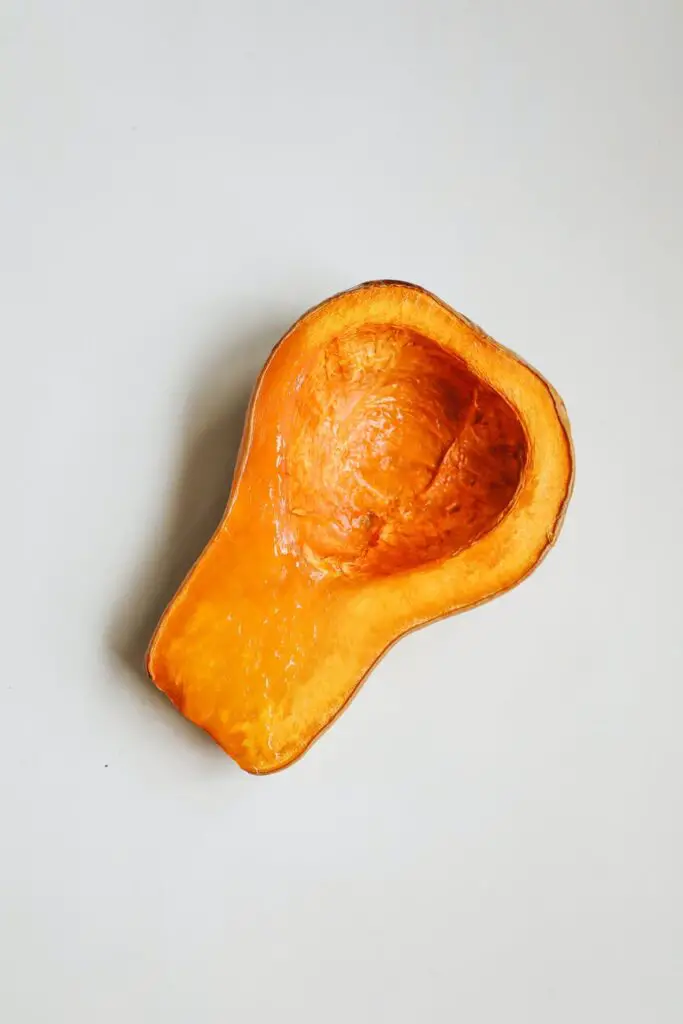We regularly cook with squash. It’s a versatile ingredient and as colorful as it is healthy and affordable. Butternut and spaghetti squash are two of our favourites, so we use them a lot in soups, stews and curries, but we’re big fans of pumpkins, too, especially pumpkin pie (who isn’t?).
We’ve written a series of posts about human foods that can be harmful to our pets. It’s made us wary about the types of snacks we leave lying around in case our dog finds them. We’re also more careful now about the types of foods we supplement his diet with.
This morning I opened our refrigerator up and saw the remains of last night’s butternut stew. It got me thinking can dogs have squash? Because we cook it so regularly that it might be a nice addition to his regular food and kibble.
As always, we’re not veterinarians nor should this article be considered as professional advice, but we hope you’ll find it helpful.
One thing before we get started. In the UK, there’s also a fruit-based cordial called squash. You may have found this page to find out if your dog can drink it. We’ve included a section at the bottom so scroll down if that’s the information you need.
What is squash?
Squash is a fruit!
That surprised us. Although, it is cooked and eaten like a vegetable. There are more than twenty varieties and the most common are butternut, acorn, and spaghetti squash, pumpkin and zucchini.
Can dogs have squash?
Yes, dogs can eat all varieties of squash. It’s high in fibre and low in calories and a lot better than some of the other human foods we’ve covered recently, including canary melon.
Squash contains vitamin C which is vital in maintaining not only a healthy immune system but good eyesight, too. It’s also high in fibre which benefits digestion as well as potassium to support kidney function, antioxidants and vitamin B6.
If you’re worried that your dog isn’t hydrated enough, then zucchini is full of water so it’s a great way of encouraging your pet to take extra fluids onboard.
Don’t give it to them raw
Always cook it before giving it to your dog. Raw squash isn’t toxic but it is hard on their digestion and could cause an upset stomach or even an obstruction that may need veterinary care.
Don’t add any seasonings or additional ingredients to it either. Keep it plain so that your dog has the full nutritional benefit without the added nasties that could be bad for its health.
Some owners buy canned squash but double check the label before serving it to your pet as there could be added ingredients.
Always remove the seeds and stalks, too. These are hard to eat and difficult to digest. Give your dog only the flesh.
Squash is great mashed. You can bake or steam it, too. Some owners add kibble to make it more attractive but this isn’t always necessary, dogs will often enjoy the sweet taste when it’s served alone.
Pumpkin puree is popular with owners and its high fibre content means it’s often recommended when a dog is suffering from diarrhoea or constipation. Canned puree has the advantage of lasting longer in the cupboard so it’s useful to have one to hand. Again, always check the label first. Avoid pumpkin pie filler as it contains additional ingredients some of which may be unsuitable for dogs.
Can dogs eat butternut squash skin?
You shouldn’t let them eat the skin. This includes acorn and spaghetti squash skin, too. It’s not toxic but it is tough on their digestive system and could be a choking hazard. Peel it off before cooking. Take out the seeds and stalk, too.
Can dogs eat frozen butternut squash?
Frozen squash is fine so long as it’s been cooked properly once it’s come out of the freezer.
Can diabetic dogs have squash?
Yes, diabetic dogs can have squash. Although, you should talk to your veterinarian before making changes to your dog’s diet. Squash contains less sugar than the sweet potato and it has lots of fiber. You may find that squash is also useful in helping your pet maintain a healthy weight as its fiber content will keep your dog feeling fuller for longer.
Can Dogs Drink Squash?
Our UK audience may be wondering if their dogs can drink squash safely. This is a fruit-flavoured drink similar to a syrup or cordial and diluted with water. It’s popular with children. One part concentrate is added to four or five parts water so a bottle lasts longer than regular juice or soda.
The answer isn’t as straightforward an answer as you might expect.
We wouldn’t give our dog squash. Drinks like this either contain a lot of sugar or artificial sweeteners and neither is suitable for a dog’s diet.
Too much sugar in a diet can cause tooth decay, cause weight gain and lead to diabetes. Some brands may also use xylitol which is toxic to dogs and can kill. Contact your veterinarian immediately if you think your dog has had xylitol. It’s found in a fair number of sugar-free products including jelly.
Water is always the best option for a dog. As tempting as it may be to mix-up their routine, the best thing you can do is encourage them to drink water.

